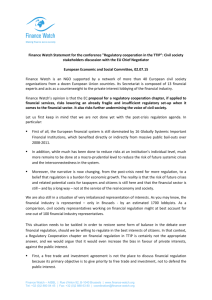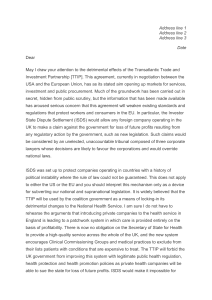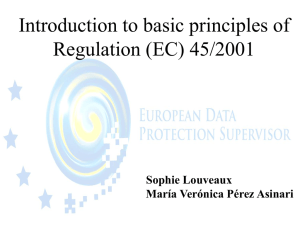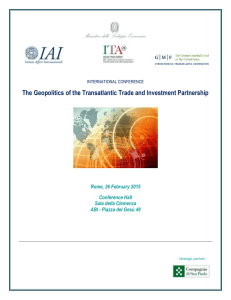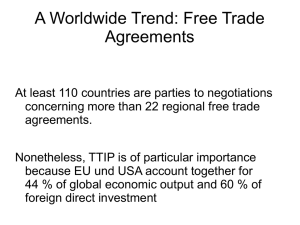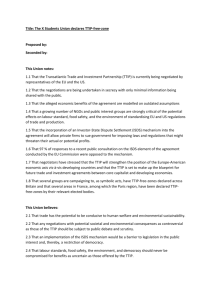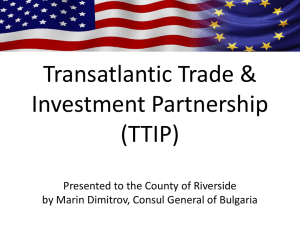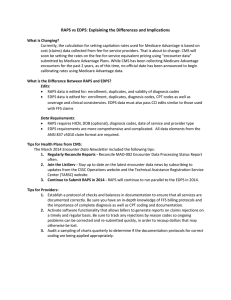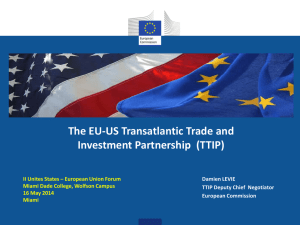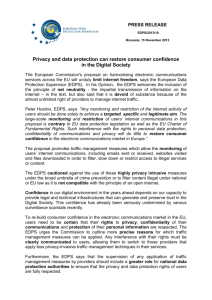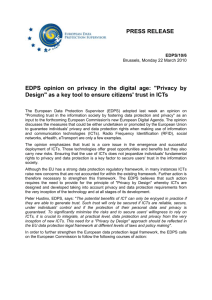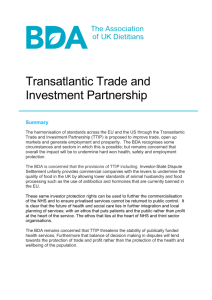(TTIP): Ensuring compatibility with European Data Protection s
advertisement
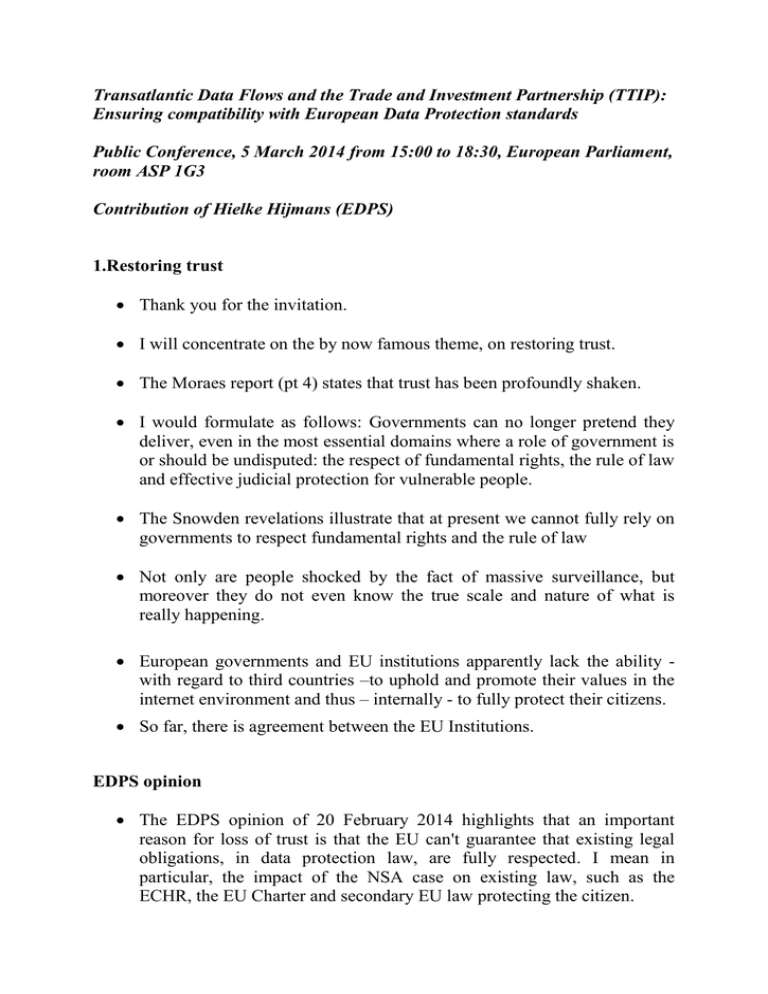
Transatlantic Data Flows and the Trade and Investment Partnership (TTIP): Ensuring compatibility with European Data Protection standards Public Conference, 5 March 2014 from 15:00 to 18:30, European Parliament, room ASP 1G3 Contribution of Hielke Hijmans (EDPS) 1.Restoring trust Thank you for the invitation. I will concentrate on the by now famous theme, on restoring trust. The Moraes report (pt 4) states that trust has been profoundly shaken. I would formulate as follows: Governments can no longer pretend they deliver, even in the most essential domains where a role of government is or should be undisputed: the respect of fundamental rights, the rule of law and effective judicial protection for vulnerable people. The Snowden revelations illustrate that at present we cannot fully rely on governments to respect fundamental rights and the rule of law Not only are people shocked by the fact of massive surveillance, but moreover they do not even know the true scale and nature of what is really happening. European governments and EU institutions apparently lack the ability with regard to third countries –to uphold and promote their values in the internet environment and thus – internally - to fully protect their citizens. So far, there is agreement between the EU Institutions. EDPS opinion The EDPS opinion of 20 February 2014 highlights that an important reason for loss of trust is that the EU can't guarantee that existing legal obligations, in data protection law, are fully respected. I mean in particular, the impact of the NSA case on existing law, such as the ECHR, the EU Charter and secondary EU law protecting the citizen. In the EDPS opinion, two deficiencies are identified as central: Lack of transparency: we do not know what happens. In this context: the Moraes report casts doubt on whether actions are guided only by the need to fight terrorism. The problem is even more complex: we do not know. Lack of enforcement: even where we do know what happens, the EU and its Member States cannot effectively ensure that breaches of the law are sanctioned. What needs to be done? The EDPS opinion comes with a list of actions that need to be undertaken in order to restore trust, This starts, first and most important, with a correct application of the law, as interpreted in the case law of the Strasbourg and Luxembourg courts. This means allowing data gathering for security purposes, but based on the criteria of necessity and proportionality. Moreover, derogations from fundamental rights should always be restrictively applied. Secondly, we should strengthen our own data protection framework, in order to: 1. Have a stronger and more effective substantive law. 2. Have strong enforcement mechanisms and enforcement powers. 3. Have a wider scope of application, vis-a-vis non EU companies. Thirdly, we should strengthen the Safe Harborand encourage the Commission to be more ambitious in its objectives to strengthen the safeguards in the Safe Harbor scheme. We however do not propose to immediately suspend the Safe Harbor. Here we are not fully in line with the Moraes report: Safe Harbor has had a slow start, but now has its merits, also because the FTC is now taking its enforcement role much more seriously. Indeed, strengthening is important and review should take place within strict deadlines, but in the meantime we should not throw away what we already have. When we talk about strengthening Safe Harbor, we should in any case limit the exception for national security. Fourthly, I also would like to underline that access by US authorities to data processed under EU jurisdiction should only take place on the basis of an agreement between the EU and the US. The NSA case shows is that this is currently not the case. For the future, the Umbrella Agreement could play an important role, but we know that negotiations are not easy. Nevertheless, we should continue, but with emphasis on a number of conditions: 1. No legitimisation of mass data transfers. 2. Effective redress mechanisms, also for European non-residents of the US 3. Ensure that existing agreements are made compliant with agreement. Last but not least, talk with Americans and support all the positive movements for changeover there. TTIP There is a sort of agreement on the EU side that TTIP may not negatively impact on data protection. TTIP and privacy/data protection are two separate issues and should stay like that. It would be much more ambitious to use our aspirations on data protection and on building communalities as an objective in the negotiations with the US. In short, to include data protection and privacy in TTIP. However, this is not realistic within the short time-frame presently contemplated. We should therefore aim at inluding a close comparable to Art XIV GATS, whixh should ensure that the agrement does not affect the enjoyment of privacy and data protection, for Europeans, nor for U.S. citizens. To conclude Including data protection and privacy into TTIP would be a revolutionary step forward, but for now the EDPS wishes to focus on less revolutionary steps. A pragmatic approach, but with the clear message that doing nothing is not an option.
